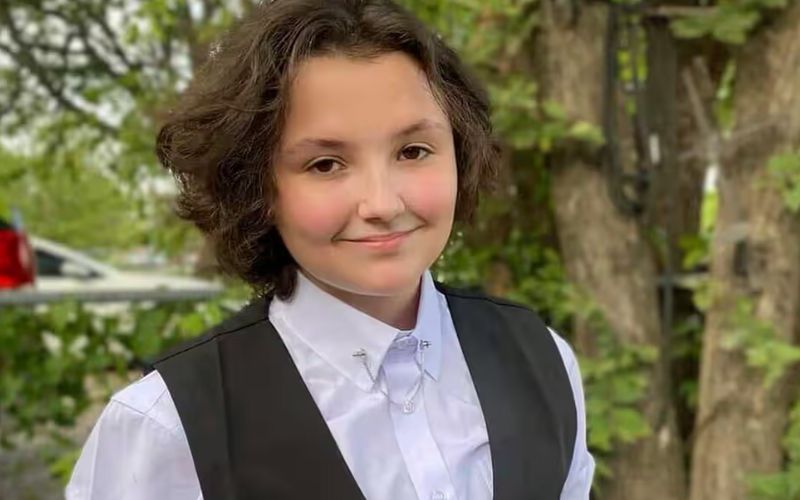
- Details
- By Elyse Wild
The death of sixteen-year-old Nex Benedict, whose mother is a tribal citizen of the Choctaw Nation of Oklahoma, has been ruled suicide according to a medical examiner's report.
According to The Oklahoman, a summary autopsy report concluded the 16-year-old died from diphenhydramine and fluoxetine toxicity. The medical examiner ruled the teen died by suicide. The full report will be released in about ten business days.
Nex, who identified as non-binary and used he/they pronouns, died on February 8, one day after a physical altercation in a girl’s bathroom at an Owasso, Okla. high school. Their death captured attention around the globe, galvanizing LGBTQ+ advocacy, anti-bullying messaging, and debates about anti-transgender legislation.
Nex faced bullying for their gender identity, according to their grandmother and guardian, Sue Benedict. Body cam footage released last month shows Nex in the emergency room, where they were being examined after their head was hit on the ground during the aforementioned altercation. Nex can be heard telling the officer that three girls were making fun of the way Nex and their friends dressed. Nex says they poured water on the girls, and then all three physically attacked him.
Nex was released from the hospital, but just 24 hours later, Sue called 911 to report that the teen was having difficulty breathing, with their eyes rolling in the back of their head and their hands clenching. Emergency medical crews performed CPR on Nex and transported them to an area hospital. Nex was pronounced dead around 3:30 p.m., according to The Oklahoman. '
Suicide rates for Native American youth are four times higher than any other group in the United States.
If you or someone you know is in crisis, call or text 988 to reach the Suicide and Crisis Lifeline or chat live at 988lifeline.org. You can also visit SpeakingOfSuicide.com/resources for additional support.
If you are an LGBTQ young person in crisis, feeling suicidal or in need of a safe and judgment-free place to talk, call the TrevorLifeline now at 1-866-488-7386 or the Rainbow Youth Project at 1-317-643-4888.
More Stories Like This
Native News Weekly (August 25, 2024): D.C. BriefsUS Presidents in Their Own Words Concerning American Indians
NDAA passes House; Lumbee Fairness Act Advances
NFL, Vikings to Host Native All-American Game, Youth Flag Clinic
Senate Committee on Indian Affairs Passes 12 Bills to Strengthen Tribal Communities
Help us defend tribal sovereignty.
At Native News Online, our mission is rooted in telling the stories that strengthen sovereignty and uplift Indigenous voices — not just at year’s end, but every single day.
Because of your generosity last year, we were able to keep our reporters on the ground in tribal communities, at national gatherings and in the halls of Congress — covering the issues that matter most to Indian Country: sovereignty, culture, education, health and economic opportunity.
That support sustained us through a tough year in 2025. Now, as we look to the year ahead, we need your help right now to ensure warrior journalism remains strong — reporting that defends tribal sovereignty, amplifies Native truth, and holds power accountable.
 The stakes couldn't be higher. Your support keeps Native voices heard, Native stories told and Native sovereignty defended.
The stakes couldn't be higher. Your support keeps Native voices heard, Native stories told and Native sovereignty defended.
Stand with Warrior Journalism today.
Levi Rickert (Potawatomi), Editor & Publisher


